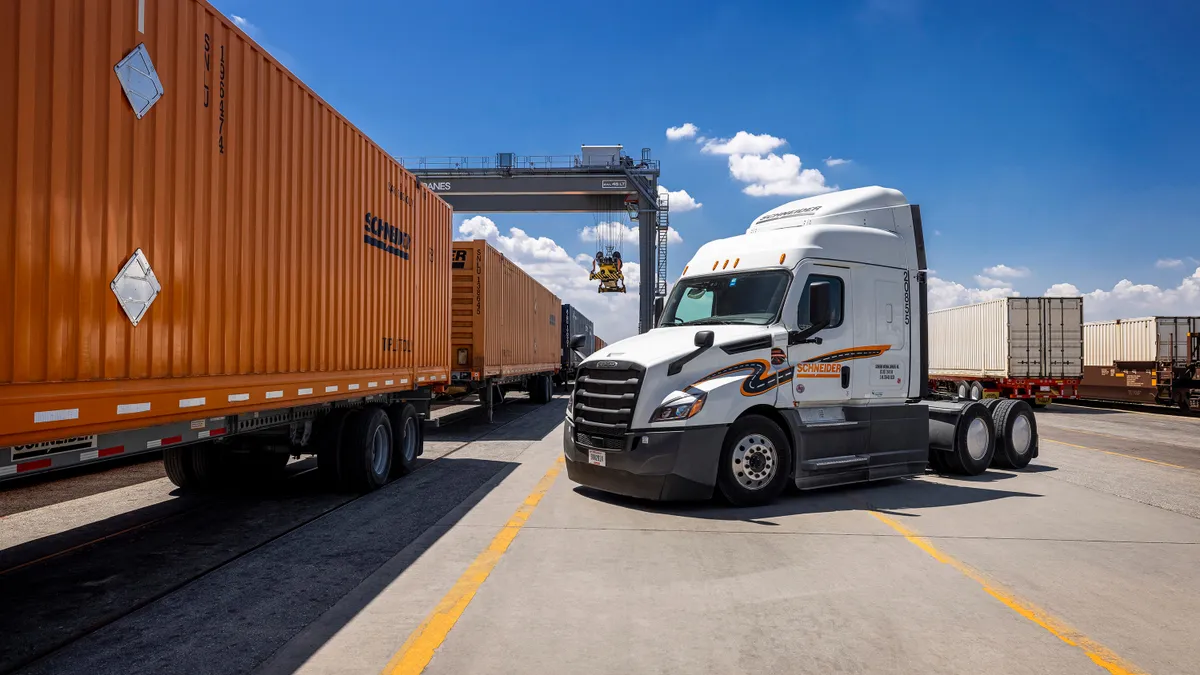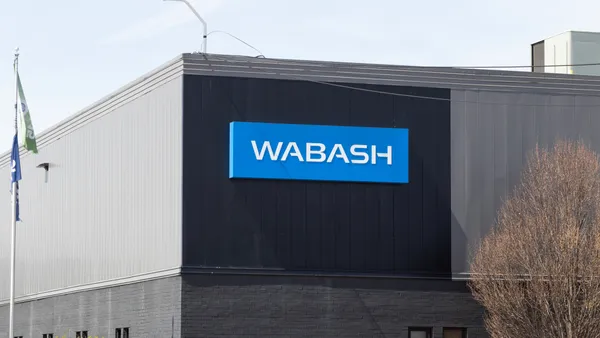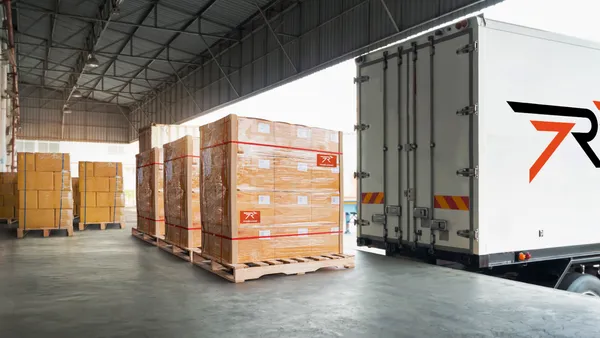Intermodal containers will be parked until businesses and retailers start clamoring to replenish inventories again, executives at J.B. Hunt and Schneider National said during a conference last month.
Freight carriers nationwide are carefully watching retailers like Macy’s and Kohl’s manage inventories to clear out stock and protect margins. In response, the nation's two largest intermodal service providers are taking their own equipment management actions that could help protect margins.
The comments came as an executive from each company presented their perspectives on transportation markets and the economy at the Wolfe Research Global Transportation and Industrials Conference last month.
The takeaway? A murky future is pushing the carriers to proactive action.
Carriers park containers amid slow economy
While both J.B. Hunt and Schneider are optimistic a recovery will happen at some point, the executives said their firms need to be ready to respond.
Jim Filter, Schneider National's EVP and group president of transportation and logistics, said the company is boosting intermodal efficiencies by adding chassis, which should improve turn rates, ultimately creating growth without placing more containers in the market.
As of May, both intermodal companies had excess container capacity. Schneider had 15% of its 27,735 containers stacked as of May, Filter revealed during the conference. J.B. Hunt President of Intermodal and EVP Darren Field also acknowledged some of its 116,115 containers were parked, though he did not disclose a number during the conference.
Furthermore, Field said J.B. Hunt may slow plans to grow its intermodal fleet to 150,000 containers over the next three to five years, given today’s freight environment.
“We have more containers than we’re using,” Field said. “We have the dray power, the drivers, [and] the employees ready to go, [but] it’s logical we may slow that down.”
J.B. Hunt, Schneider see a murky future ahead
A second-half economic turnaround appears unlikely, according to Field.
“I don’t have any green shoots for you,” said Field. "I think everybody has a significant dose of ‘I have no idea’ and that just means inventories are beginning to bleed off, but that hasn’t translated to anything at this point for us.”
The weak freight market has led to belt tightening in the trucking segment. Executives from ArcBest, Heartland Express, Knight-Swift and Old-Dominion Freight Line have all indicated the underperforming spring freight market has led to assorted strategies to generate revenue including accepting lower-value shipments and rate reductions.
Both intermodal executives said they were encouraged that some retailers reported falling inventories in the past month, but overall consumer demand remained murky.
Filter said freight volume, which has remained stable since the company reported its Q1 earnings on April 27, showed no signs of improvement.
While J.B. Hunt has a strong customer base, competition for freight is fierce, and shippers are seeking bargain prices for what is available, Field said.
“It’s tough out there and pricing is a factor,” he said. “I think that we’re working hard everyday and calling every customer we know [because] everybody is scraping for volume.”















